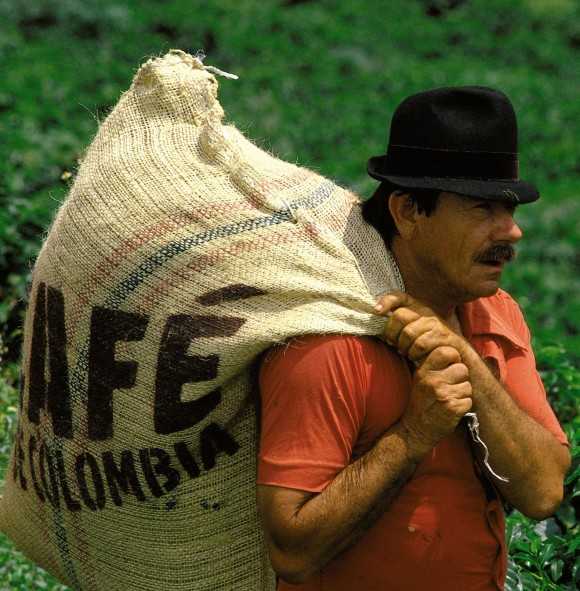OTTAWA and TORONTO, Canada – Canada’s International Development Research Centre (IDRC) is proud to announce the Climate Resilience for Coffee Growers Partnership: a two-year, 1.12 mil venture dedicated to supporting Colombian coffee farmers.
The partnership, featuring IDRC, Tim Hortons and Cenicafé—the advisory arm of Colombia’s national coffee federation—will help coffee farmers develop strategies for improving productivity and adapting to climate threats.
Colombia is the world’s third-largest coffee producer, with 2.5 million Colombians depending on coffee for their livelihoods.
The country’s coffee-growing areas endure higher temperatures, less predictable rainfall, and increases in pests and plant diseases.
For example, devastating fungal disease and other related climate-change impacts attacked coffee plants in 2011, slashing Colombia’s production by 40% and forcing some poorer farmers to abandon their crops.
Funding from the partnership will allow Cenicafé to work with farmers to explore relevant climate adaptation options.
This will help farmers secure and stabilize their livelihoods and be more competitive in the face of climate change, while securing the supply and quality of their coffee.
Cenicafé researchers will also receive assistance from staff at the Tim Hortons Coffee Partnership, a farmer-support program established in 2005 to improve the businesses and lives of coffee farmers.
Working in two coffee-growing areas in Colombia’s Risaralda Department and one in Caldas, the group will collect and analyze data on climate and land-use changes; project future trends; and assess and test adaptation methods with local farmers.
“By establishing this partnership, Canada continues to make an important contribution toward improving the lives of Colombia’s 600,000 smallholder coffee farmers,” said IDRC President Jean Lebel. “Canada is acting on its commitment to help the most vulnerable.”
“IDRC looks forward to testing and refining solutions through this innovative partnership between the private and public sectors. These innovations will help coffee growers across Colombia be more resilient to the effects of climate change.”
About IDRC
Part of Canada’s foreign affairs and development efforts, IDRC invests in knowledge, innovation, and solutions to improve lives and livelihoods in developing regions of the world. Bringing together the right partners around opportunities for impact, IDRC builds leaders for today and tomorrow and helps drive large-scale positive change.
About Tim Hortons Coffee Partnership
The Tim Hortons Coffee Partnership was established in 2005, with the goal of improving the lives of coffee farmers, their families and the entire community within the regions where TIM HORTONS® sources coffee.
The Partnership’s philosophy is consistent with the brand’s long history of giving back to communities.
By bringing together suppliers, non-governmental organizations and, most importantly, the farmers themselves, the Tim Hortons Coffee Partnership enables farmers to acquire the skills and tools they need to improve the economic, social and environmental aspects of their businesses.
In Colombia, the Coffee Partnership is implemented by the Hans R. Neumann Stiftung Foundation and works in close cooperation with the Coffee Growers Federation, the provincial coffee committee, the Ministry of Agriculture, local governments, and a Canadian non-government organization, SOCODEVI.
About Cenicafé (Colombia’s National Coffee Research Center)
For more than 70 years, Cenicafé has researched themes that include the development of new productive coffee varieties as well as plants resistant to specific pests and disease, coffee production, harvesting methods, wet mill processes, quality, by-products management, and natural resource conservation.
The protection, recovery, and appropriate management of soils and water sources have always been a priority to Cenicafé.
It was established in 1938 as the technical arm of the Colombian Coffee Growers Federation to advance research aimed at improving productivity and quality in the country’s coffee sector.
A renowned world research centre dedicated exclusively to coffee, Cenicafé’s 200 employees include plant breeders, agronomists, plant physiologists, entomologists and soil scientists, as well as post-harvest and marketing specialists.


















